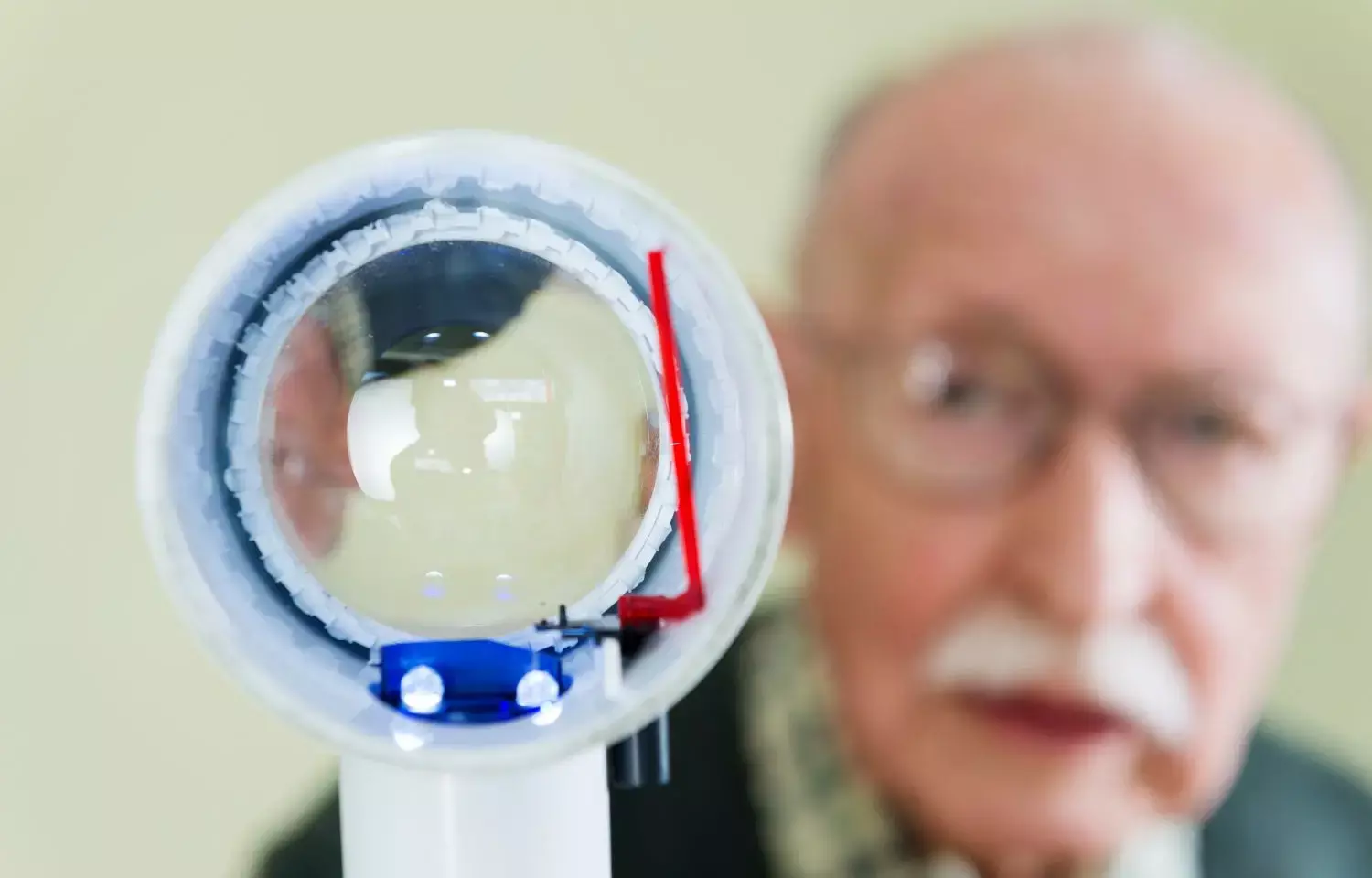- Home
- Medical news & Guidelines
- Anesthesiology
- Cardiology and CTVS
- Critical Care
- Dentistry
- Dermatology
- Diabetes and Endocrinology
- ENT
- Gastroenterology
- Medicine
- Nephrology
- Neurology
- Obstretics-Gynaecology
- Oncology
- Ophthalmology
- Orthopaedics
- Pediatrics-Neonatology
- Psychiatry
- Pulmonology
- Radiology
- Surgery
- Urology
- Laboratory Medicine
- Diet
- Nursing
- Paramedical
- Physiotherapy
- Health news
- Fact Check
- Bone Health Fact Check
- Brain Health Fact Check
- Cancer Related Fact Check
- Child Care Fact Check
- Dental and oral health fact check
- Diabetes and metabolic health fact check
- Diet and Nutrition Fact Check
- Eye and ENT Care Fact Check
- Fitness fact check
- Gut health fact check
- Heart health fact check
- Kidney health fact check
- Medical education fact check
- Men's health fact check
- Respiratory fact check
- Skin and hair care fact check
- Vaccine and Immunization fact check
- Women's health fact check
- AYUSH
- State News
- Andaman and Nicobar Islands
- Andhra Pradesh
- Arunachal Pradesh
- Assam
- Bihar
- Chandigarh
- Chattisgarh
- Dadra and Nagar Haveli
- Daman and Diu
- Delhi
- Goa
- Gujarat
- Haryana
- Himachal Pradesh
- Jammu & Kashmir
- Jharkhand
- Karnataka
- Kerala
- Ladakh
- Lakshadweep
- Madhya Pradesh
- Maharashtra
- Manipur
- Meghalaya
- Mizoram
- Nagaland
- Odisha
- Puducherry
- Punjab
- Rajasthan
- Sikkim
- Tamil Nadu
- Telangana
- Tripura
- Uttar Pradesh
- Uttrakhand
- West Bengal
- Medical Education
- Industry
Dex implant improves Pseudophakic cystoid macular edema in diabetes patients without retinopathy

A recent study comparing the effects of intravitreal dexamethasone (DEX) implants on diabetic and non-diabetic patients without diabetic retinopathy (DR) suffering from refractory pseudophakic cystoid macular edema (PCME) found favourable outcomes. The findings were published in International Journal of Retina and Vitreous.
The study, which included 42 patient records, aimed to understand the impact of DEX implants over a 12-month period following prior treatments with topical nepafenac 0.1% and prednisolone 1%. The patients' best-corrected visual acuity (BCVA) and central foveal thickness (CFT) were the main parameters assessed, and linear regression analysis was employed for statistical evaluation.
Before DEX implantation, both diabetic and non-diabetic subjects showed improvements with topical treatment. However, the real breakthrough came after DEX implantation. Non-diabetic patients experienced a remarkable gain in BCVA and a substantial reduction in CFT, with a mean BCVA gain of -0.35 and a CFT reduction of -195.71 µm. Diabetic patients, similarly, saw significant improvements, with a BCVA gain of -0.55 and a CFT reduction of -260.81 µm. These improvements were statistically significant (p < 0.001), indicating the potential efficacy of DEX implants.
Interestingly, patients who responded well to the initial topical treatment showed even better visual outcomes after DEX implantation. This correlation suggests that identifying patients who respond favorably to topical treatments may lead to improved results with subsequent DEX implantation.
One of the most significant findings of this study was that diabetic patients without DR responded comparably to non-diabetic patients in terms of BCVA and CFT improvements. This suggests that selected diabetic patients may benefit from this treatment just as much as their non-diabetic counterparts when dealing with PCME.
While further research is needed to confirm these findings and to explore the long-term effects of DEX implants, this study offers hope to those suffering from PCME.
Source:
Rodrigues, M. V., Garcia, J. M. B., Pacheco, K. D., Borges, F. T., Isaac, D. L. C., & Avila, M. (2023). Pseudophakic macular edema in nondiabetic and diabetic patients without diabetic retinopathy treated with intravitreal dexamethasone implant. In International Journal of Retina and Vitreous (Vol. 9, Issue 1). Springer Science and Business Media LLC. https://doi.org/10.1186/s40942-023-00489-2
Neuroscience Masters graduate
Jacinthlyn Sylvia, a Neuroscience Master's graduate from Chennai has worked extensively in deciphering the neurobiology of cognition and motor control in aging. She also has spread-out exposure to Neurosurgery from her Bachelor’s. She is currently involved in active Neuro-Oncology research. She is an upcoming neuroscientist with a fiery passion for writing. Her news cover at Medical Dialogues feature recent discoveries and updates from the healthcare and biomedical research fields. She can be reached at editorial@medicaldialogues.in
Dr Kamal Kant Kohli-MBBS, DTCD- a chest specialist with more than 30 years of practice and a flair for writing clinical articles, Dr Kamal Kant Kohli joined Medical Dialogues as a Chief Editor of Medical News. Besides writing articles, as an editor, he proofreads and verifies all the medical content published on Medical Dialogues including those coming from journals, studies,medical conferences,guidelines etc. Email: drkohli@medicaldialogues.in. Contact no. 011-43720751


